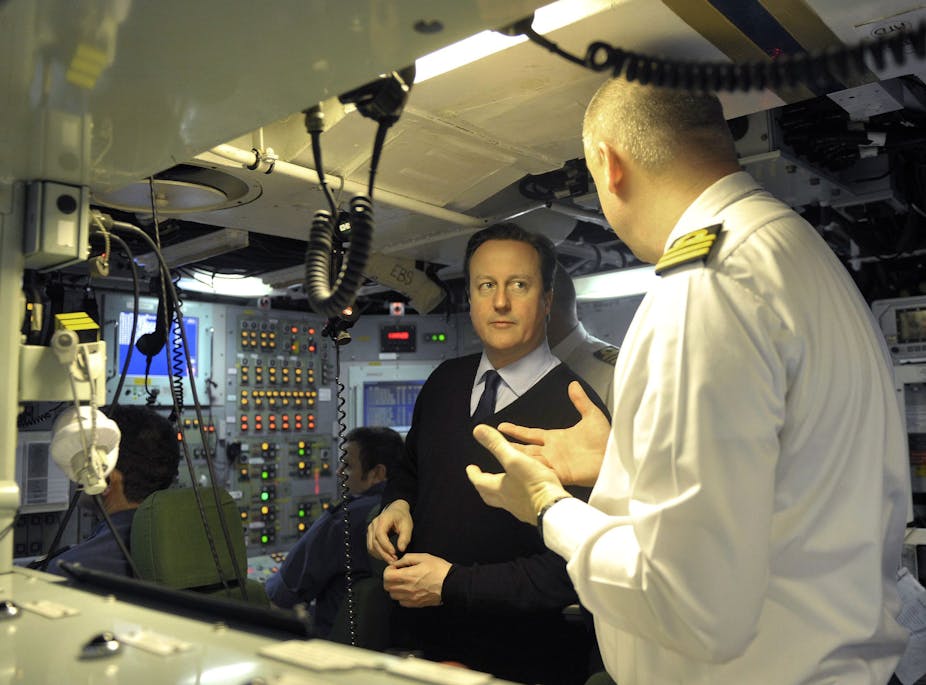The Coalition government is pressing ahead with a long, expensive and controversial programme to replace the Trident nuclear weapon system beginning with the procurement of a new fleet of submarines armed with ballistic missiles. But serious questions have been asked about the necessity of staying in the nuclear weapons business and whether a like-for-like replacement of the current system is the most appropriate policy.
The Conservatives and significant Labour figures such as John Hutton and George Robertson insist it is. They maintain it is essential for UK security to continue to deploy a fleet of dedicated submarines, one of which is always at sea ready to fire up 40 thermonuclear warheads. The Liberal Democrats have questioned this logic and are developing options for a smaller, cheaper replacement through a government-sanctioned Trident Alternatives Study.
Yet the strategic security case for retaining nuclear weapons is thin and the opportunity costs for the Ministry of Defence are significant as its budget is cut. Meanwhile, the world is looking for leadership on nuclear disarmament and the public is ambivalent at best.
Supporters of Trident’s replacement talk about “future uncertainty”, arguing we had better hang on to our nuclear weapons just in case. If the costs were minimal and the effect of our retaining nuclear weapons benign, all well and good. But that is not the case.
Counting the cost
The costs involved are significant: £25 billion to replace the current system, plus £2-3 billion per year to operate it. This is a big chunk of the ministry’s budget at a time when it is shrinking. It means if we replace Trident we will not be able to procure other, arguably more relevant and useful, conventional military capabilities.
So it is necessary to question whether Trident is an appropriate investment given the types of security threats we have a pretty good idea we are going to face over the coming decades. These include a range of transnational and sub-national security threats arising from the effects of climate change, socio-economic inequality, resource scarcity, nationalism or exclusivist ideologies and failed or failing states.
We have limited defence resources with which to confront these challenges. Nuclear weapons provide little solution to the types of conflict and security challenges resulting from current and projected diverse and interdependent sources of insecurity.
Thinking the unthinkable
We must also ask whether it could ever be right to use our nuclear weapons to inflict devastation upon another society. We have made an abiding commitment that we would only ever use nuclear weapons in accordance with international humanitarian law applicable in armed conflict.
We have explicitly accepted the judgment of the 1996 International Court of Justice Advisory Opinion on the “legality of the threat or use of nuclear weapons” that “the threat or use of nuclear weapons would generally be contrary to the rules of international law, and in particular the principles and rules of humanitarian law”. This holds that the only circumstances in which nuclear use might be lawful is in “an extreme circumstance of self-defence, in which the very survival of a state would be at stake”.
Advocates of Trident replacement urge us to look to the long-term, to mid-century and beyond, where we simply cannot predict with any degree of certainty what the world will look like. But the further ahead we look the starker the choice we face becomes. We know we cannot escape uncertainty, but we face, in the end, living with the uncertainties of one of two nuclear futures.
The first is what Ken Booth calls “radical nuclear multipolarity”: an unstable nuclear world in which the multiple security challenges we know we are going to face are suffused with nuclear weapons across a growing number of states with unsecured stockpiles of material that is in turn keenly eyed by non-state actors.
The alternative is building global institutions to facilitate a world free of nuclear weapons.
A like-for-like Trident replacement will inevitably reinforce the logic of nuclear deterrence and the attractiveness of nuclear weapons, revalidate nuclear weapons as an essential currency of power in international politics, and reproduce a global nuclear system moving inexorably toward radical nuclear multipolarity with all the dangers that entails. Our retention of nuclear weapons is not cheap and it is certainly not benign.
But our political masters do not tend to think in decades. For them the next election is always around the corner. Trident is and always has been a heavily politicised issue. Labour continues to see electoral liability in stepping away from anything other than the nuclear status quo. The Conservatives (and many in Labour) wrap our nuclear weapons in a cloak of “major powerdom”, or what Tony Blair called being a “pivotal” power on the world stage. Being a nuclear weapon state, for them, is part of who we are and how we act in the world. It is about elite conceptions of national role, status, influence, responsibility, power, and credibility (not least in Washington).
Nuclear business-as-usual is Whitehall’s default setting. But questions of cost, public support, relevance, and global leadership towards a world free of nuclear weapons are raising serious obstacles along that path.

